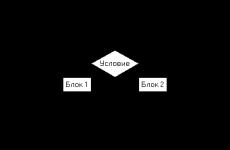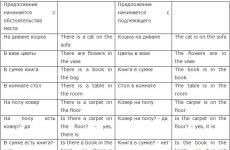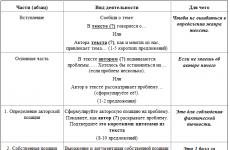Remaining vacation for last year. When does the main leave expire? Leave compensation upon dismissal
We all know that there are workaholics who do not want to go on vacation under any circumstances. And in our time, many try to save money, save money and deny themselves the right to rest. There are cases when employees do not take vacation for several, or even ten years. The question quite reasonably arises: what to do with unfilled vacations and whether they are burned out?
The answer to this question is provided by the Labor Code and Convention No. 132 of the International Labor Organization “On paid holidays”. Russia ratified the Convention by Law No. 139-FZ of July 1, 2010; the Convention entered into force on September 6, 2011.
The norms of the Labor Code and the Convention on the duration of leave and its breakdown into parts are fully consistent with each other. According to Article 3 of the Convention, the duration cannot be less than three weeks; according to Article 115 of the Labor Code, the vacation is 28 calendar days.
According to Article 8 of the Convention, vacation can be divided into parts so that one part of the vacation is at least two continuous working weeks; according to Article 125 of the Labor Code, one part of the vacation must be at least 14 calendar days. The rules regarding the “depth” of the period for which leave is granted are also consistent.
According to Article 9 of the Convention, the continuous part of the leave is granted and used no later than within one year, and the balance of the annual paid leave no later than within 18 months after the end of the year for which the leave is granted.
IN Labor Code stipulated that in some cases, leave must be used no later than 12 months after the end of the working year for which it is granted. It is prohibited not to provide an employee with annual paid leave for two consecutive years.
note
You can only use your vacation for two days last year. In other words, the employer is prohibited from not providing vacation for more than two working years. Failure to comply with this procedure is regarded as a violation of labor legislation, for which a fine is provided.
Article 127 of the Labor Code establishes that upon dismissal, an employee is paid monetary compensation for all unused days vacation. Article 11 of the Convention states that if an employee has unused vacation days upon dismissal, the employer is obliged to compensate them.
Thus, you can only use vacation leave for the last two years. In other words, the employer is prohibited from not providing vacation for more than two working years. Failure to comply with this procedure is regarded as a violation of labor legislation, for which a fine is provided. If a company fails to provide an employee with leave for two consecutive years, it may be fined.
But the employee will only lose the time provided to him by law for rest. Only time allocated for rest and not used for a period exceeding two years “burns out.”
But money for unused vacation, including for a period earlier than two years, the employee will still receive compensation for unused vacation upon dismissal. And for the company, this is most often an unplanned additional expense for payment.
Calculate compensation
Cash compensation for unused vacation is paid to:
- upon dismissal, in accordance with Article 127 of the Labor Code;
- at the written request of the employee for that part of the vacation that exceeds 28 calendar days, in accordance with Article 126 of the Labor Code.
For pregnant women and employees under the age of 18, basic annual paid leave cannot be replaced by monetary compensation. The company does not have the right to pay money in lieu of additional paid leave to those employees who are engaged in harmful or dangerous work.
The amount of compensation for unused vacation is calculated as follows.
Formula for calculating compensation for unused vacation
Moreover, the average daily earnings are calculated in the same way as when paying for “regular” vacation.
Having determined the average daily earnings, you need to find out how many days of vacation the employee is entitled to during the period worked. By general rule, the employee is entitled to 28 days of vacation annually. If the employee has worked less than this period, then the number of vacation days is determined in proportion to the months worked. For one full month worked, you are entitled to 2.33 days of vacation (28 days: 12 months).
The company is obliged to pay compensation on the day of dismissal. This is required by Article 140 of the Labor Code. Upon leaving, an employee may decide not to receive monetary compensation, and spend the unused part of the vacation.
Then (upon the written request of the employee) you will first provide him with unused vacation, and then fire him (this does not apply to cases where a person is fired for guilty actions). In this case, the day of dismissal will be considered the last day of vacation.
Employees who have unused vacations should find out whether unused vacations from previous years expire, and also what is the procedure for compensation for missed legal vacations. For employers, what are the consequences of not providing vacation, even with the consent of citizens who were not on vacation?
Is it possible to postpone my vacation to next year?
According to Art. 122 of the Labor Code of the Russian Federation, annual paid leave of at least 28 calendar days is mandatory.
Workers in Russia not only have the right to rest while receiving vacation cash benefits - they must do it. If hired employees do not have to fear administrative penalties for refusing annual leave, then the employer faces charges of infringement labor rights citizens.
The problem arises when some of the staff do not take vacation for several years, expecting to receive monetary compensation for unused vacation.
If an employee did not take vacation only once last year, then he has the right to transfer the vacation to the current year.
Note: Article 124 of the Labor Code obliges to take off missed annual paid leave no later than 12 months following the end of the fully worked calendar year.
Important details:
- you must first use the unpaid vacation for the past year, only then - for the current one;
- HR department employees or other persons drawing up a vacation schedule for the next year should take into account unused periods of paid rest in the current year;
- in an application for leave, the employee is not obliged to emphasize that we are talking about an unused period. The text indicating the duration of the vacation, which is no different from the vacation application for the current year, is legally correct.
Should be issued by order. If the initiator is an employee, his application is required. Both documents must contain good reason, provided for in Art. 124 TK.
Even if there are such reasons, the manager does not have the right to leave a subordinate without paid rest for more than 2 years in a row.
Does unused vacation expire?
To figure out whether unused vacation is burned or not in 2019 is prompted by Russia’s ratification of the International Labor Organization convention, which provides for the retention of the employee’s right to annual paid rest only for 21 months.
Additionally
Upon dismissal, the employee has the right to all previously unused vacations. This right can be exercised by providing the employee with monetary compensation for the entire accumulated period. If there are few unused days, then the employer can send the employee on vacation, and only after that can fire him.
This ratification did not entail the adoption of amendments to the Labor Code of the Russian Federation and other regulations that do not provide for any burning of unpaid vacations.
According to the letter of Rostrud dated June 8, 2007 No. 1921-6, employees who have not taken vacation for several years still have the right to use all accumulated vacation days.
According to the Labor Code, the employer is obliged to annually provide each employee with continuous leave of at least 14 calendar days. The remaining days - both for the current year and previous ones - are divided arbitrarily (Article 125 of the Labor Code). Find out how you can divide vacation according to the labor code. This allows the employee to periodically take 1-2 days off without leaving workplace for a long period, and the employer - to eliminate the violation of labor legislation in terms of paid leaves.
Does unused vacation expire? - answer in video
What are the consequences of several years without vacations?
The above-mentioned ILO convention does not allow the replacement of guaranteed paid rest with compensatory cash payments.
A subordinate has the right to demand that an employer compensate unused vacation for previous years with money only upon dismissal (how compensation for unused vacation is calculated, read the article). According to the law, for now labor Relations are not terminated, you cannot receive this amount.
Note: persons who continue to work are entitled to monetary compensation exclusively for non-time off work, added to 28 calendar days or another period of the main one.
If, upon dismissal, the employer decides to compensate the employee for unused vacation only for the last 21 months on the basis of the same international convention, the citizen will contact the State Labor Inspectorate. As a result:
- the audit will reveal that the person was not provided with paid leave for several years in violation of the law, which will entail an administrative fine of up to 50 thousand rubles;
- GIT will oblige you to pay compensation for unpaid vacation in full.
If you challenge the decision of the State Tax Inspectorate in court, it is not a fact that he will side with the employer - judges often make decisions in favor of employees.
To avoid problems with the law and/or large payments to those leaving, it is recommended to promptly send employees on legal rest in accordance with the Labor Code and the vacation schedule.
Ask your question and get free legal advice
Every year the employee must rest; the Labor Code of the Russian Federation provides for a mandatory paid period in the form of vacation with a minimum amount of, in the general case, 28 cal days. However, often in practice a situation arises when employees work at an enterprise for several years without going on vacation. Is this acceptable? Will vacation not taken be forfeited?
In 2017, vacation not taken, according to the labor code, does not expire. Vacation days are transferred to future periods; upon dismissal, the employer is obliged to pay monetary compensation for all unfilled vacation days.
The reason for working without a vacation break may be related to both the desire of the employee himself and the peculiarities of the organization of the labor process in the company. Many workers do not want to rest so as not to lose wages, intending to receive monetary compensation for vacation pay for all days not taken off.
Compensation for unspent vacation days is possible only upon dismissal. You can also replace with money additional paid leave to the main one. If the employment contract is not terminated, then it will not be possible to replace unused vacation for the past working year with compensation.
Is it necessary to go on vacation every year?
Article 122 of the Labor Code of the Russian Federation states that it is provided to every employee annually. Each working year requires a minimum of 28 calendar days. In some cases, additional days are added - .
There are also provisions in Article 124 that vacation for the past working year must be taken no later than 12 months following its end. It turns out that an employee must rest at least once every 2 years. In practice, there are increasingly situations where workers work for several years without going on vacation. Vacation days accumulate. The question arises: will the accumulated vacation days burned out? Is it possible to receive monetary compensation for them or can you go on one long vacation of a duration equal to the total duration of all vacations not taken?
Will vacation not taken be expired in 2017?
The Labor Code does not change in this matter in 2017; the worker must still go on vacation every year. If this does not happen, then it is necessary to rely on Rostrud letter 1921-6, according to which an employee who has not rested for several years still has the right to all vacation days not taken. Vacations have not expired before and will not expire in 2017 either. There are no changes in this matter.
Not all employees go on vacation every year. There are those who have not rested for three, four or more years in a row. This state of affairs contradicts the Labor Code, so personnel officers and accountants have to urgently apply for leave for past periods. Our article will help you figure out how to correctly draw up a vacation schedule in this situation, in what sequence to provide vacations for past periods, and what maximum amount days of rest can be granted in the current year.
“Ideal” vacation scheme
If you strictly follow the letter of the law, then you cannot “accumulate” vacation for more than two years. This is directly stated in Article 124 of the Labor Code. Therefore, even if the employee does not want to rest, the employer is obliged to issue compulsory leave.
To do this, it is enough to include the employee in the vacation schedule, which, according to Article 123 of the Labor Code of the Russian Federation, is mandatory not only for the employer, but also for the employee himself. Next, you need to notify the person against signature of the start of the vacation no later than two weeks before the start, and also accrue and pay vacation pay. These actions will mean that the employer has complied with the requirements of the law, regardless of the employee’s intentions.
However, in real life, many companies and entrepreneurs do not act this way. As a result, among the workers there are those who have not rested for three, four or more years. To rectify the situation, HR officers and accountants have to urgently apply for leave for past periods.
Should unused vacation be included in the current schedule?
There is an opinion that when drawing up a schedule for the next year, only the vacation provided for the current period should be taken into account. But leave for past periods should be provided upon a written application from the employee. Supporters of this point of view refer to Article 124 of the Labor Code of the Russian Federation, which states that the transfer of vacation to another period is carried out upon the written application of the employee.
But there is another point of view, which we also adhere to. The current schedule must include all vacations, including those granted for previous periods. After all, it is possible that the employee does not write a statement, and then the schedule will become the only basis for granting “overdue” leave.
As for Article 124 of the Labor Code of the Russian Federation, it deals with a situation where the employer did not fulfill his duties. Namely, he did not issue vacation pay or did not promptly warn the employee about the start of vacation. In such circumstances, the reason for postponing the vacation is the employee’s application. If the leave is not used at the employee’s initiative, an application is not required.
In what order should holidays be granted for past periods?
The Labor Code does not say in what sequence vacations not used in previous periods should be granted. In practice, experts use two different approaches.
The first approach implies that you first need to provide vacation for the current period, and only after that move on to “overdue” vacations. Proponents of this approach argue as follows: since, according to Article 122 of the Labor Code of the Russian Federation, leave must be granted annually, the current period has priority. An additional argument is the letter of Rostrud dated 01.03.07 No. 473-6-0. It contains the following phrase: “ Labor legislation does not contain provisions providing for the use of vacations for working periods in chronological order.” This means vacation for more later periods You can take time off before vacation for earlier periods has been used.
The second approach, in contrast, is to grant leaves in chronological order. Let's illustrate with an example.
Let's say an employee did not take vacation for 2012, 2013, and so on until today. In this case, the employer must first give leave for 2012, then for 2013, and so on. Vacation for 2018 will be the last one. The basis here is the fact that, thanks to chronological order“old debts” are reduced, and the employer gradually corrects the violation. At the same time, the requirement of Article 122 of the Labor Code of the Russian Federation was met, because vacation was granted this year. This approach does not contradict Rostrud letter No. 473-6-0, since this letter does not directly prohibit chronological sequence.
In our opinion, both approaches are acceptable. The employer needs to choose the one that seems more acceptable to him and fix it in local regulations(for example, in an order from a manager).
How many days of vacation can be provided during the year?
If an employee has not rested for several years, then the number of unused vacation days can be in the dozens, and sometimes even exceeds 100. The question arises: will the employer break the law if he provides all these days within one year?
The Labor Code does not contain any restrictions on this matter. Simply put, a company or entrepreneur can safely pay off their vacation “debts” to an extent that will not harm production process. Moreover, in a situation where all “overdue” leave is granted at once, the employer has a significantly increased chance of avoiding conflict with labor inspectors. Thus, if we are talking about unused vacation, then any number of days is legal.
In December, there was a rumor among employees of many organizations that vacations not taken would expire in 2019; the Labor Code is indeed going to be supplemented with new conditions for providing mandatory days recreation, but these changes will not affect all citizens. For most, nothing will change on this issue. In addition, unused vacation days have nothing to do with the planned amendments to the Labor Code.
Do unused vacations expire in 2019?
According to the requirements of Article 114 of the Labor Code of the Russian Federation, all employed citizens are entitled to days for rest with preservation wages and workplace. This is called annual paid leave, the duration of which is usually 28 calendar days. Sometimes employees have the right to additional days due to the specifics of their profession or length of service. If a person has not rested for a certain period and is worried whether his vacation may be burned if he has not taken time off, he need not worry. Unused days accumulate and can be used at another time.
Nothing will change in this matter in the coming year. Rumors that unused vacations from 2019 are being lost have no basis. All unused days can be safely included in the vacation schedule, which all employers had to approve by December 15. If the employee is unable to fully rest, management must save the remainder of his days off from work and transfer them to the next period, but only for one (Article 124 of the Labor Code of the Russian Federation). The employer has no right not to provide an employee with rest time for two years in a row. Also, the following cannot work without mandatory rest days:
- minor workers (under the age of 18);
- persons employed in work with harmful or dangerous working conditions.
For some categories of workers there are also special conditions for relax. By the way, company management simply does not have the right not to provide vacation time. This is administrative offense, for which, according to Article 5.27 of the Code of Administrative Offenses of the Russian Federation, a fine of from 30,000 to 50,000 rubles is provided. In some cases, the company may even be suspended for up to 90 days.
Compensation for unused days: during work and upon dismissal
Since it is mandatory annual leave is paid, for which the employee is entitled to vacation pay. Therefore, sometimes both employers and employees themselves wonder whether it is possible to simply receive monetary compensation instead of absence from work? But, according to the norms of Art. 127 of the Labor Code of the Russian Federation, this is possible only in strictly defined situations:
- upon dismissal from work;
- if there are additional days (beyond the usual 28).
Such additional days of rest are provided for:
- persons specified in Art. 116 Labor Code of the Russian Federation;
- persons with a special nature of work, for example teachers (Article 118 of the Labor Code of the Russian Federation);
- employees with harmful and dangerous working conditions (Article 117 of the Labor Code of the Russian Federation);
- residents of the Far North and territories with a similar status.
They can write a free-form application to the employer and turn unused additional vacation into material benefits. Everyone else can receive money for unused time only upon termination employment contract, and they don’t need to write any application for this. The calculation of compensation occurs in the same way as the calculation of vacation pay: depending on the average daily salary of the employee. This regime will continue in 2019.
What will change with the arrival of 2019
What will change in the vacation issue? The State Duma is considering a bill that will change the procedure for providing paid vacation days to parents of young children and disabled children. When the amendments are adopted, one of the parents raising a disabled child under the age of 18 or two or more children under the age of 14 will be able to write an application to the employer to provide the required rest at any convenient time. Management will not have the right to refuse this.






